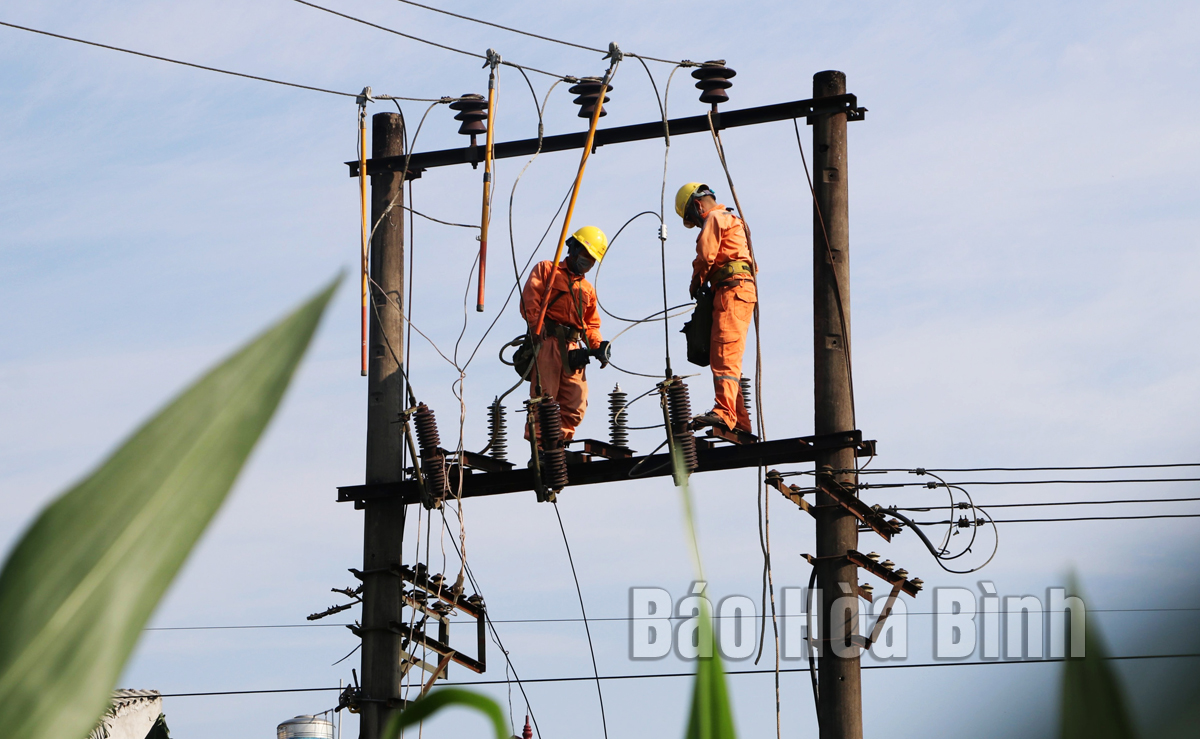The mountainous, sparsely populated province has been facing various
difficulties in expanding its electricity supply network. At the time the
province was established, its electricity infrastructure was very poor with
only 70% of households with access to power.
Director of PC Hoa Binh Nguyen Phuc Thinh said that the company has mobilised
resources to upgrade the power grid. From 2016 – 2020, more than 400 power
projects were constructed at the total cost of more than 700 billion VND, he
noted, adding that nearly 200 billion VND was allocated to major repair
projects.
Over the last two years, hundreds of transformer stations have been newly
installed in remote areas, he said. In 2022, the company has been focusing on
developing low to medium voltage power grids with a total investment of around
200 billion VND. Thanks to such efforts, all households in the provinces now
have access to the national grid for production and daily use. Electricity
quality has been improved to better meet people’s demand.
Additionally, PC Hoa Binh has made considerable progress in digital
transformation. Thinh said the company is striving to complete the process by
the end of 2022, enabling it to operate as a digital firm. One of its biggest
achievements was to finalise the development of customers' databases. It has
also cooperated with banks, intermediaries and e-wallets to accelerate cashless
payment of electricity bills. By the end of July 2022, the percentage of
customers who pay electricity bills using non-cash methods exceeded 64%./.



